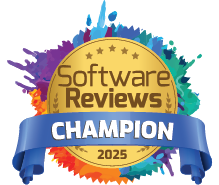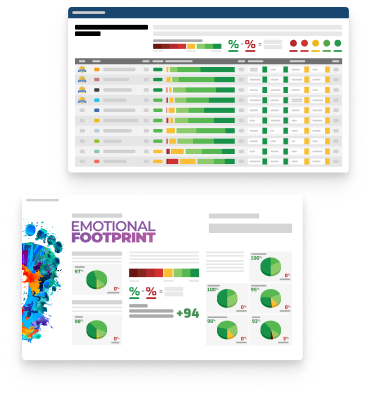

What is Microsoft SQL Server?
Apply intelligence across all your data with SQL Server 2022. Whether your data is structured or unstructured, query and analyze it using the data platform with industry-leading performance and security. Regardless of where your data is stored, query and analyze it with the data platform known for performance, security, and availability.
Company Details
Need Assistance?
We're here to help you with understanding our reports and the data inside to help you make decisions.
Get AssistanceMicrosoft SQL Server Ratings
Real user data aggregated to summarize the product performance and customer experience.
Download the entire Product Scorecard
to access more information on Microsoft SQL Server.
Product scores listed below represent current data. This may be different from data contained in reports and awards, which express data as of their publication date.
90 Likeliness to Recommend
100 Plan to Renew
95 Satisfaction of Cost Relative to Value
Emotional Footprint Overview
- Product Experience:
- 95%
- Negotiation and Contract:
- 82%
- Conflict Resolution:
- 93%
- Strategy & Innovation:
- 92%
- Service Experience:
- 95%
Product scores listed below represent current data. This may be different from data contained in reports and awards, which express data as of their publication date.
+92 Net Emotional Footprint
The emotional sentiment held by end users of the software based on their experience with the vendor. Responses are captured on an eight-point scale.
How much do users love Microsoft SQL Server?
Pros
- Continually Improving Product
- Reliable
- Performance Enhancing
- Enables Productivity
How to read the Emotional Footprint
The Net Emotional Footprint measures high-level user sentiment towards particular product offerings. It aggregates emotional response ratings for various dimensions of the vendor-client relationship and product effectiveness, creating a powerful indicator of overall user feeling toward the vendor and product.
While purchasing decisions shouldn't be based on emotion, it's valuable to know what kind of emotional response the vendor you're considering elicits from their users.
Footprint
Negative
Neutral
Positive
Feature Ratings
Templates
Data Visualization
Asset Hub
Text Editing
Layout Editing
Collaboration
Drag and Drop Design
Social Media Integration
Graphics Editing
Vendor Capability Ratings
Ease of Implementation
Business Value Created
Quality of Features
Ease of Data Integration
Product Strategy and Rate of Improvement
Usability and Intuitiveness
Ease of IT Administration
Ease of Customization
Availability and Quality of Training
Breadth of Features
Vendor Support
Also Featured in...
Microsoft SQL Server Reviews

Fatima R.
- Role: Information Technology
- Industry: Engineering
- Involvement: End User of Application
Submitted Mar 2024
Best product
Likeliness to Recommend
What differentiates Microsoft SQL Server from other similar products?
Built-in Business Intelligence and Analytics: SQL Server comes with built-in business intelligence (BI) and analytics features. These include tabular and multidimensional modeling with SQL Server Analysis Services (SSAS), paginated reports with SQL Server Reporting Services (SSRS), and extract, transform, and load (ETL) processes with SQL Server Integration Services (SSIS). Hybrid Cloud Capabilities: SQL Server offers easy database deployment and management between on-premises and cloud environments thanks to its hybrid cloud capabilities.
What is your favorite aspect of this product?
Enterprise-grade Features: Advanced security features, high availability choices, and reliable disaster recovery solutions are just a few of the enterprise-grade features that SQL Server provides. The demanding specifications of enterprise environments are satisfied by these characteristics. Analytics and Business Intelligence: SQL Server comes with built-in analytics and business intelligence features like SQL Server Integration Services (SSIS), SQL Server Reporting Services (SSRS), and SQL Server Analysis Services (SSAS). With the use of these tools, users can construct processes for data integration, generate reports, and analyze data.
What do you dislike most about this product?
Challenges associated with Upgrades and Migrations: Changing SQL Server editions or databases between on-premises and cloud deployment models, for example, can be difficult and time-consuming procedures. During these changes, users can run into problems with data transfer, downtime, or compatibility. Limited Support for Open Source Technologies: Despite the fact that SQL Server has made progress in integrating open source technologies, such as Hadoop and Apache Spark, some users may find that the platform's support for these technologies is less extensive than that of other database solutions with native or more deeply integrated support.
What recommendations would you give to someone considering this product?
Put Strong Security Measures in Place: Put strong security measures in place to guard sensitive data and SQL Server databases against breaches, illegal access, and data loss. To improve security posture and regulatory compliance, make use of features like auditing, role-based access control (RBAC), Always Encrypted, Transparent Data Encryption (TDE), and audits. Test Recovery methods and Backup SQL Server Databases Often: To guarantee data resilience and integrity against data loss or corruption events, test recovery methods and backup SQL Server databases frequently. Create thorough backup and recovery plans that are documented and adapted
Pros
- Effective Service
- Helps Innovate
- Continually Improving Product
- Reliable
Please tell us why you think this review should be flagged.
Siddhaarth S.
- Role: Information Technology
- Industry: Technology
- Involvement: Vendor Selection and Purchasing
Submitted Feb 2025
Enterprise-Grade Database Solution
Likeliness to Recommend
What differentiates Microsoft SQL Server from other similar products?
It offers seamless integration with the Microsoft ecosystem, including Azure, Power BI, and Visual Studio. This synergy simplifies everything from database development to analytics and reporting, ensuring a smooth end-to-end data management experience.
What is your favorite aspect of this product?
Always On availability groups, and comprehensive security tools—combined with a user-friendly interface through SQL Server Management Studio (SSMS). This powerful blend helps teams tackle complex workloads efficiently.
What do you dislike most about this product?
licensing can be pricey for smaller businesses, and there’s a bit of complexity in picking the right edition. However, for organizations that rely heavily on the Microsoft stack, the ROI often justifies the cost.
What recommendations would you give to someone considering this product?
Pair SQL Server with Microsoft Azure and other tools to unlock advanced analytics and cloud capabilities.
Pros
- Respectful
- Trustworthy
- Unique Features
- Effective Service
Please tell us why you think this review should be flagged.

Dinesh P.
- Role: Information Technology
- Industry: Banking
- Involvement: IT Leader or Manager
Submitted Feb 2025
"Full of features, Easy to use".
Likeliness to Recommend
What differentiates Microsoft SQL Server from other similar products?
Microsoft SQL Server stands out from other database management systems due to its deep integration with the Microsoft ecosystem, enterprise-grade security features, and user-friendly tools like SQL Server Management Studio (SSMS). It offers advanced analytics, in-memory processing, and built-in AI capabilities, making it well-suited for high-performance workloads. Additionally, its seamless integration with Azure services provides powerful hybrid and cloud-based database solutions, differentiating it from competitors like MySQL, PostgreSQL, and Oracle.
What is your favorite aspect of this product?
One of my favorite aspects of SQL Server is its high availability and disaster recovery features. The Always On availability groups ensure that databases stay online even during failures, and the performance optimizations can handle large workloads efficiently. When combined with Azure, SQL Server becomes an incredibly powerful hybrid solution for businesses that need both on-premise and cloud capabilities.
What do you dislike most about this product?
That said, there are some downsides. The biggest one for me is the cost—SQL Server’s licensing fees can be quite high, especially for smaller businesses or startups. Also, while it does run on Linux now, it’s still primarily optimized for Windows, so cross-platform performance isn’t as smooth as with open-source databases like PostgreSQL or MySQL. And even though Microsoft has improved query optimization with AI-driven features, manual tuning is still often required for complex workloads, which can be frustrating at times.
What recommendations would you give to someone considering this product?
For anyone considering SQL Server, my recommendation would be to carefully assess your budget and infrastructure. If your business already relies on Microsoft products, SQL Server is an excellent choice because of its deep integration with Azure, Windows, and Power BI. But if you're working in a Linux-heavy environment or need a more cost-effective solution, you might want to compare it with alternatives like PostgreSQL. Also, take the time to explore the built-in tools for high availability and performance tuning—they can make a huge difference in how efficiently your database runs.
Pros
- Helps Innovate
- Continually Improving Product
- Reliable
- Enables Productivity
Please tell us why you think this review should be flagged.
Get Instant Access<br>to this Report
Get Instant Access
to this Report
Unlock your first report with just a business email. Register to access our entire library.
© 2025 SoftwareReviews.com. All rights reserved.






